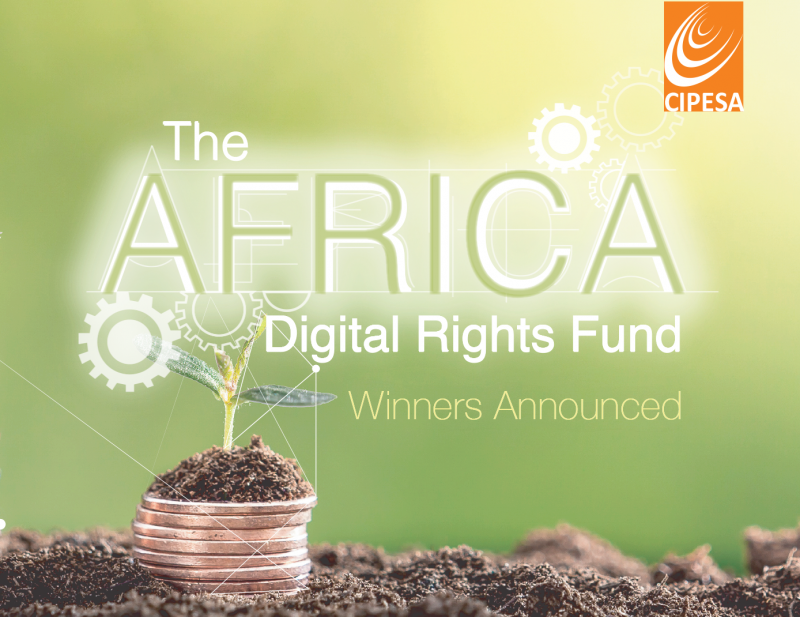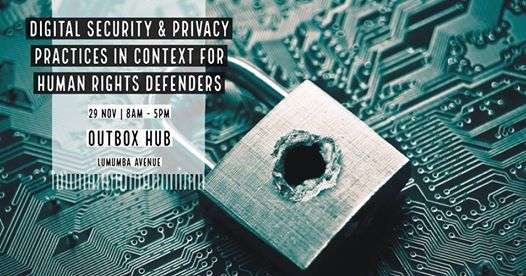Announcement |
The Collaboration on International ICT Policy for East and Southern Africa (CIPESA) is pleased to announce the winners of the first round of the Africa Digital Rights Fund (ADRF). A total of USD 65,000 has been awarded to 10 initiatives that will advance digital rights in 16 African countries – Algeria, Burundi, Egypt, Ethiopia, Gambia, Mozambique, Namibia, Nigeria, Sierra Leone, Senegal, South Sudan, Tanzania, Tunisia, Uganda, Zambia and Zimbabwe.
Launched in April 2019, the ADRF is aimed at growing the number of individuals and organisations that work to advance digital rights in Africa, amidst rising digital rights violations such as arrests and intimidation of internet users, network disruptions, and a proliferation of laws and regulations that hamper internet access and affordability, and undermine the potential of digital technologies to catalyse free expression, civic participation, and innovation.
Although it is still early days, the Fund has received profuse interest from across the continent, with several worthy initiatives proposing projects including in countries with numerous digital rights challenges but little effort to address them.
According to Ashnah Kalemera, the CIPESA Programmes Manager, the first call for proposals attracted more than 150 applications from 30 countries. “Digital rights advocacy, digital safety and security skills building, innovating for social enterprises’ efficiency, litigating for digital rights, and empowerment for marginalised communities, were among the prevalent lines of work proposed. There were few proposals in the area of research, and much fewer on engagement in legislative processes, despite the ongoing enactment of often retrogressive laws and regulations governing digital rights,” she said.
The applicants were assessed by a panel of experts based on the following attributes:
- The applicant’s experience in advancing digital rights/track record on similar work;
- Demonstrated need for the project including relevance to described context and priorities of the Fund;
- Eligibility in terms of geographic coverage, proposed activities, duration, and evidence of the applicant’s formal registration or operations;
- Demonstration of innovation with regards to approach, feasibility of deliverables and timelines, and potential impact of the intervention;
- Budget feasibility; and
- Diversity considerations.
The review panel consisted of three internal CIPESA programme staff and four external experts with extensive experience in the digital rights field. The external reviewers were Neil Blazevic -Technology Manager at DefendDefenders (formerly East and Horn of Africa Human Rights Defenders Project), Sadibou Sow – West and Central Africa Regional Technology Advisor of Amnesty International, Dr. Edgar Napoleon Asiimwe – Research Manager at the Swedish Programme for ICT in Developing Regions (Spider), and Koliwe Majama – Organiser of the Africa School of Internet Governance at the Association for Progressive Communications (APC).
The winners of the ADRF’s first call are:
1. Access for All – South Sudan
Access for All will build the advocacy and digital security capacity of South Sudanese women refugees and human rights defenders. These engagements, which will be conducted in Arabic and English, will explore current human rights defenders’ security/ protection concerns in South Sudan, and the mechanisms to address them.
2. African Human Rights Network (AHRN) Foundation – Tanzania
The project will strengthen the capacity of human rights defenders (HRDs) and their organisations on digital security and provide them with essential tools. A total of 60 Tanzania HRDs will be provided with training and exchange opportunities to reduce digital security risks. The project complements the activities of Shelter City Dar es Salaam which is a regional temporary relocation program for HRDs in the Great Lakes region.
3. Burundi Youths Training Centre – Burundi
The project will build the capacity of human rights defenders and media organisations in digital rights advocacy. The engaged organisations will be mentored to develop and implement strategic advocacy campaigns for digital rights, including the right to privacy and personal data protection in Burundi.
4. Centre for Human Rights, University of Pretoria – South Africa
The centre will document and analyse threats and mounting pushbacks against civil society in the digital age in Egypt, Sierra Leone, Uganda, and Zambia. Leveraging its network of former graduates and local partner tertiary institutions, the centre will map the legal and digital threats to civil society in the focus countries in order for stakeholders to have full evidence-based knowledge of these threats and how to navigate them. The bilingual (French and English) research outputs will feed into the centre’s Master’s programme curriculum module on civil society studies in Africa and short courses on human rights and good governance.
5. Freedom of Expression Hub (FoE Hub) – Uganda
In collaboration with the Uganda Law Society, the Freedom of Expression Hub will conduct digital literacy and litigation surgeries for lawyers and journalists in northern Uganda’s West Nile sub-region on emerging digital rights issues affecting freedom of expression, access to information and media rights. The surgeries aim to promote collaboration and rapid response to digital rights violations especially through courts of law. Furthermore, the Hub will work on creating a database of advocates who can adequately respond to digital rights cases in the sub-region.
6. Global Voices – Sub-Saharan Africa, Middle East and North Africa
As part of its wider Advox programme, Global Voices will document experiences of online mis/disinformation and the impact of internet shutdowns on citizens’ rights to freedom of expression and access to information during elections and protests in seven countries – Algeria, Ethiopia, Mozambique, Nigeria, Tunisia, Uganda and Zimbabwe. Through translation and targeted outreach, the project will contribute African perspectives to the global debate on mis/disinformation and shutdowns, and train local writers to improve their digital rights reporting skills.
7. Internet Society (ISOC) Namibia Chapter – Namibia
In the run up to the November 2019 elections, ISOC Namibia will work to build the capacity of journalists and editors to fact-check misinformation. It will also work with women parliamentarians, political activists and various other actors in a campaign to tackle politically motivated-gender based violence online.
8. Jonction – Senegal
Jonction will implement advocacy and awareness creation campaigns among state, private sector and civil society actors in Senegal to foster an enabling environment for freedom of expression, privacy and data protection online.
9. Kuza STEAM Generation (KsGEN) and Centre for Youth Empowerment and Leadership (CYEL) – Tanzania
The grant will be used to organise “Schools” on Internet Governance (IG) and digital rights through which various stakeholders will be trained and mentored to lead IG-related discussions at national and regional level. One of the schools will specifically target girls and women in Arusha so as to increase Tanzanian women’s participation in internet governance
10. YMCA Computer Training Centre and Digital Studio – The Gambia
Building on its youth-empowerment initiatives, YMCA Gambia will undertake a sensitisation drive on cyber-bullying and online safety among youths as a means of combating harassment and online abuse of women and girls.


